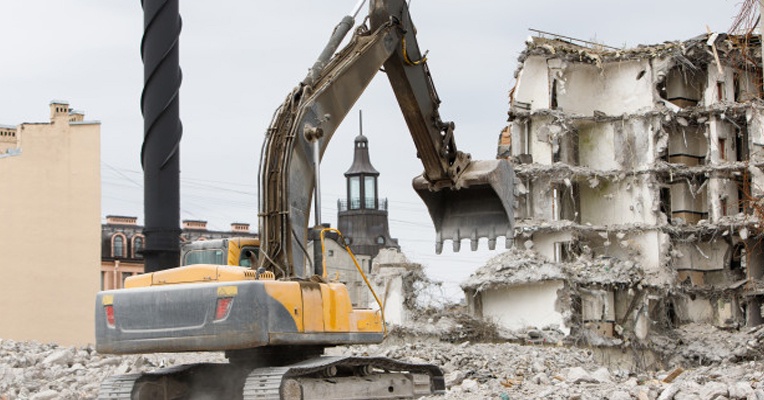Considering a demolition project? Whether you're a homeowner planning a renovation or a business owner clearing land for development, demolition can seem like a daunting task. But with the right knowledge and guidance, it can be a smooth and successful process. This article will demystify demolition services, providing expert insights and advice to help you navigate your project with confidence.
Understanding Demolition
Demolition is the controlled dismantling or destruction of a structure. It encompasses various techniques and equipment, depending on the size, type, and materials of the building being demolished. Here's a breakdown of some common methods:
- Mechanical Demolition: This involves using heavy machinery like excavators, bulldozers, and hydraulic hammers to break down the structure. It's a fast and efficient method but can be disruptive and generate a lot of dust.
- Implosion: Explosives are strategically placed within the structure to cause a controlled collapse. This method is typically used for very large or complex structures and requires extensive planning and safety precautions.
- Deconstruction: This method focuses on carefully dismantling the structure piece by piece, salvaging usable materials like timber, bricks, and metals. It's a more eco-friendly approach but can be time-consuming and requires skilled labor.
Choosing the Right Demolition Contractor
The success of your demolition project hinges on selecting the right contractor. Here are some key factors to consider:
- Experience and Licensing: Ensure the contractor has a proven track record in handling similar projects. Verify they have the necessary licenses and permits for demolition work in your area.
- Safety Measures: Inquire about the contractor's safety protocols and their commitment to minimizing dust, noise, and environmental impact.
- Insurance: Make sure the contractor has adequate liability and worker's compensation insurance to protect yourself from any unforeseen accidents.
- Project Timeline and Budget: Get detailed quotes outlining the scope of work, timeframe for completion, and all associated costs. Don't be afraid to compare quotes from multiple contractors.
Demolition Permits and Regulations
Demolition projects almost always require permits from local authorities. These permits ensure the demolition adheres to safety codes and environmental regulations. The specific permits needed will vary based on your location and the size and complexity of the project. Your chosen demolition contractor can help you navigate the permitting process.
Demolition Considerations for Montreal
Montreal, with its rich history and diverse architecture, has specific regulations regarding demolition projects. Here are some additional considerations for demolition in Montreal:
- Heritage Protection: Certain areas or buildings in Montreal may be designated as heritage sites. If your demolition project falls within one of these areas, you'll need to comply with additional regulations to preserve the historical significance.
- Asbestos Abatement: Many older buildings in Montreal contain asbestos, a hazardous material. If your project involves demolishing a structure built before the late 1980s, it's crucial to have a certified asbestos abatement contractor assess and remove the asbestos before demolition can begin.
- Decontamination in Montreal: Depending on the intended use of the land post-demolition, decontamination in Montreal services may play necessary role. For example, if the land was previously used for industrial purposes, there could be soil or groundwater contamination that requires remediation before construction can proceed.
Environmental Impact of Demolition
Demolition can have an environmental impact, generating dust, noise, and debris. Here are some ways to minimize this impact:
- Salvaging Materials: Deconstruction methods can be employed to salvage reusable materials like wood, metal, and concrete. This reduces the amount of waste going to landfills and promotes a more sustainable approach.
- Dust Control: Contractors should utilize dust suppression measures like water cannons and misting systems to minimize dust generation during demolition.
- Recycling and Disposal: Reputable demolition companies have established procedures for recycling and properly disposing of demolition debris.
Planning for a Smooth Demolition Project
Here are some final tips to ensure a smooth demolition project:
- Clear Communication: Maintain open communication with your contractor throughout the project. Discuss any concerns or questions you may have promptly.
- Utilities Disconnection: Arrange for the disconnection of all utilities like gas, water, and electricity before demolition begins.
- Site Security: Ensure the demolition site is properly secured to prevent unauthorized access and protect surrounding properties.
- Post-Demolition Considerations: Have a plan for managing the remaining debris and preparing the site for its intended future use.
Conclusion
Demolition projects can be complex undertakings. However, by understanding the process, selecting the right contractor, and adhering to regulations, you can ensure your project is completed safely, efficiently, and with minimal environmental impact. With the insights and advice provided in this article, you're well on your way to achieving a successful demolition project.


No comments yet